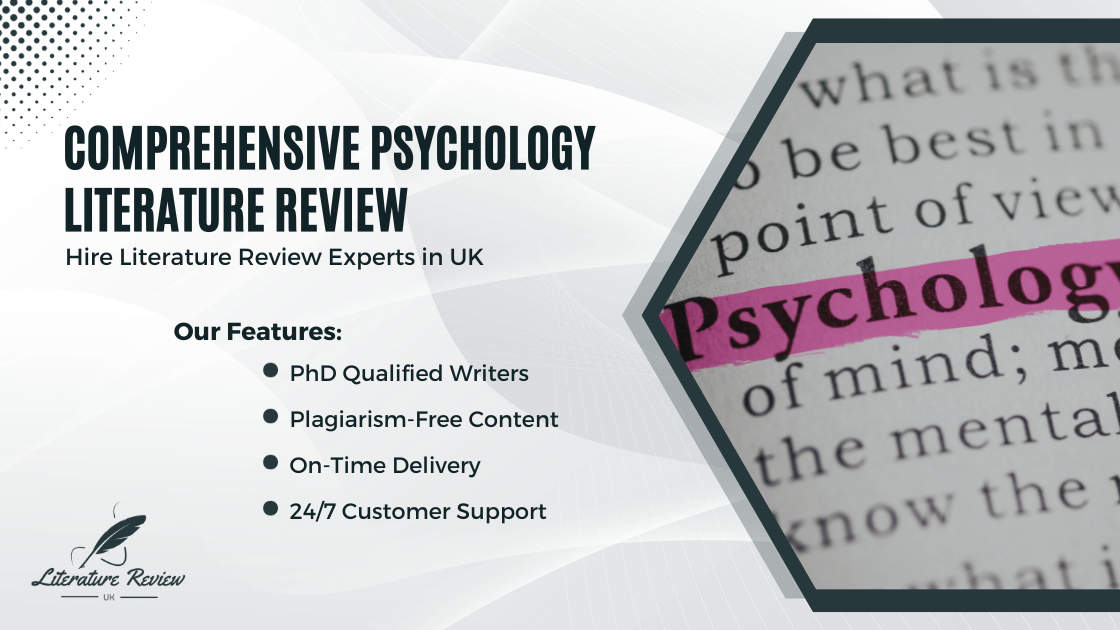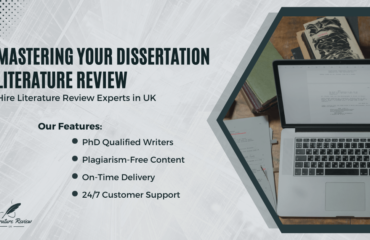
Are you a psychology student or researcher looking to ace your next literature review? Do you aspire to master the art of critically analyzing and synthesizing research in your field? Look no further because, in this comprehensive guide, we will take you on a journey to master the art of a comprehensive psychology literature review. By the end of this article, you’ll have the knowledge and confidence to create a literature review that stands out and makes a significant impact on your academic or research career.
Unpacking the Psychology Literature Review
Let’s begin by demystifying the concept of a psychology literature review. This essential component of academic research serves several critical purposes:
1. Knowledge Synthesis: A literature review provides a comprehensive overview of existing research in a specific area of psychology, helping you grasp the current state of knowledge.
2. Identification of Gaps: It identifies gaps in the existing literature, paving the way for new research questions and hypotheses.
3. Critical Evaluation: A well-executed literature review involves the critical appraisal of each source, allowing you to assess the quality and reliability of the research.
4. Theory Building: It helps in building and refining theoretical frameworks that underpin your research.
Now that we’ve established the importance of a psychology literature review, let’s dive into the steps to create a compelling one.
Step 1: Define Your Scope
Before you embark on your literature review journey, it’s crucial to define the scope of your review. You need to answer key questions like:
- What specific area or topic within psychology are you exploring?
- What are your research objectives?
- Are you examining a particular time period, population, or methodology?
By clearly defining your scope, you’ll narrow down your search and ensure your review is both manageable and focused.
Step 2: Conduct a Thorough Search
The heart of any literature review is the comprehensive search for relevant sources. This process often involves exploring various academic databases, libraries, and search engines. Additionally, you can find valuable resources such as paper digests and literature reviews in PDF format. These sources can provide a strong foundation for your review.
Leveraging Paper Digests and Literature Reviews
Paper digests are an invaluable resource in your literature review journey. They offer concise summaries of research papers, helping you quickly identify the relevance and quality of a study. Literature reviews in PDF format, on the other hand, often present a well-organized summary of existing research, providing a structured overview of your chosen topic. Make sure to cite these sources correctly and assess their quality during your review process.
Step 3: Critical Appraisal
Once you’ve gathered an extensive collection of sources, it’s time to critically appraise them. Critical appraisal involves evaluating the quality, credibility, and relevance of each source. Here’s where you can employ critical review examples in psychology to guide your assessment.
How to Critically Appraise Sources
- Assess the research design: Consider whether the study employs appropriate methodologies and data collection techniques.
- Evaluate the sample size and representativeness: Larger, more diverse samples tend to produce more robust results.
- Scrutinize the statistical analyses: Ensure that the statistical methods used are appropriate for the research question.
- Check for potential biases: Identify any potential biases in the study design, sample selection, or reporting.
- Examine the clarity and reliability of the results: Ensure the research findings are presented clearly and supported by appropriate evidence.
By critically appraising each source, you will be able to identify the most reliable and relevant studies to include in your literature review.
Step 4: Synthesize the Literature
Once you’ve assessed your sources, it’s time to synthesize the information. This is where you draw connections between various studies and identify common themes, trends, or conflicts in the existing literature.
Organize Your Literature Review
- Consider organizing your review chronologically to trace the development of ideas over time.
- Alternatively, you can group studies by themes or concepts to emphasize similarities and differences.
- Highlight gaps in the literature where more research is needed.
- Provide a clear structure for your readers, guiding them through your review logically.
Step 5: Writing Your Literature Review
Writing a compelling psychology literature review is an art in itself. Begin with a clear introduction that outlines the purpose and scope of your review. Follow this with a well-structured body, presenting your findings and synthesizing the literature in an organized manner.
Tips for Writing a Strong Literature Review
- Use clear and concise language.
- Cite your sources accurately using the appropriate citation style (e.g., APA, MLA).
- Connect the studies you review to build a cohesive narrative.
- Offer critical insights and analysis.
- Conclude with a summary of key findings and directions for future research.
Example of a Psychology Literature Review
As a practical demonstration, let’s take a look at an excerpt from a hypothetical psychology literature review on the topic of “The Impact of Social Media on Mental Health.”
Excerpt from the Literature Review:
“In recent years, there has been a growing body of research exploring the complex relationship between social media usage and mental health outcomes. While some studies suggest a detrimental impact of excessive social media use on psychological well-being, others propose nuanced effects that vary with factors such as age, gender, and the nature of social media engagement.
For example, Smith and Johnson (2019) conducted a longitudinal study that found a significant association between increased daily social media use among adolescents and higher levels of self-reported anxiety and depression symptoms. Conversely, the research by Davis et al. (2020) argues that the effect of social media on mental health is moderated by the type of usage—passive scrolling may lead to negative outcomes, while active engagement in supportive online communities can promote a sense of belonging and reduce loneliness.”
This example showcases how a well-structured literature review presents a range of studies, synthesizes findings, and offers critical insights into the topic under investigation.
Conclusion
Mastering the art of a comprehensive psychology literature review is a vital skill for any psychology student or researcher. It allows you to gain a deep understanding of existing research, identify gaps, and contribute meaningfully to the field. By defining your scope, conducting a thorough search, critically appraising sources, synthesizing the literature, and writing with precision, you can create a literature review that makes a substantial impact.
Remember, there’s no one-size-fits-all approach to conducting a literature review, and it’s okay to seek guidance and resources to help you on your journey. Utilize examples of psychology literature reviews, paper digests, and literature review PDFs to enhance your understanding of the process. Additionally, don’t hesitate to reach out to professionals who provide Literature Review Help Services in the UK for expert guidance and support.
With this knowledge and the right tools at your disposal, you’re well on your way to becoming a master of the psychology literature review. So, go ahead, embark on your literature review journey, and contribute to the ever-evolving field of psychology research.




